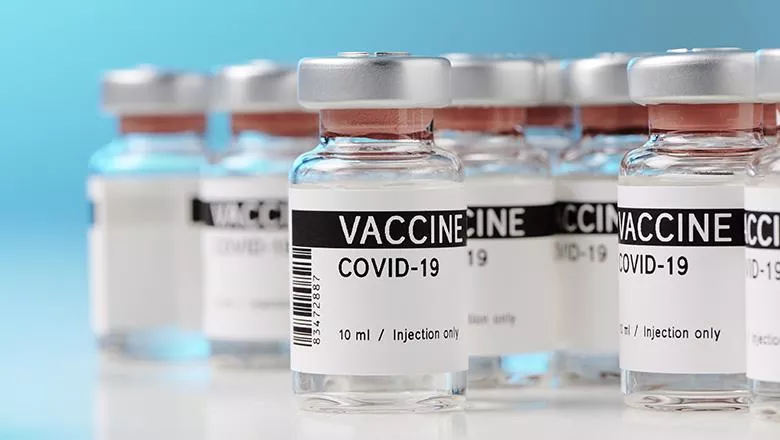While global mass COVID-19 vaccination programmes are underway, there remains concern over vaccine efficacy in immunocompromised patients, including against novel SARS-CoV-2 variants that threaten immune escape. Measures of the immune response that correspond to the risk of COVID-19 after vaccination are unknown and emerging research in immunocompromised patients has focused on seroconversion alone. We show that serological responses are not representative of the complex immune response to vaccines."
Dr Satveer Mahil Guy, from Guy’s and St Thomas’ NHS Foundation Trust
12 July 2021
COVID-19 vaccine: Antibody response weakened in patients receiving methotrexate
The antibody – but not the T cell – response to the first dose of the Pfizer COVID-19 vaccine is weakened in patients taking the immunosuppressant methotrexate. In contrast, antibody and T cell responses are preserved in patients taking biologics.

The study is presented at this year’s European Congress of Clinical Microbiology & Infectious Diseases (ECCMID) and published simultaneously in The Lancet Rheumatology. It is led by researchers from King’s and St John’s Institute of Dermatology, Guy’s and St Thomas’ NHS Foundation Trust.
Three to 7% of people in Europe and North America have immune-related inflammatory diseases such as psoriasis, rheumatoid arthritis and inflammatory bowel disease. Treatments such as the drug methotrexate and targeted biologic therapies work by suppressing the immune system and while they can be highly effective, they also increase the risk of serious infections.
Patients taking immunosuppressants for immune-mediated inflammatory diseases were excluded from COVID-19 vaccine trials and so there is a lack of data on how well they work in this vulnerable group.
Many countries, including the UK have extended the interval between doses to allow as many people as possible to get their first dose. Therefore, it is essential to analse the immune response to a single dose of vaccine.
The team of clinicians and researchers enrolled 101 participants from January 14 2021 to April 4 2021 (84 patients with the skin condition psoriasis and 17 healthy volunteers). The participants’ median age was 43, 55% were male, 84% were of White ethnicity and none had had Covid.
The psoriasis patients were taking methotrexate (17 patients, median dose of 15mg/week), TNF inhibitors (27 patients), IL-17 inhibitors (15 patients) or IL-23 inhibitors (25 patients).
Immune response was measured immediately before being given a single dose of the Pfizer vaccine and 28 days later. The primary outcomes were humoral immunity (neutralising antibody response) to the SARS-CoV-2 virus and T-cell response 28 days after vaccination.
Rates of seroconversion (the development of antibodies against the virus) were lower in the patients on immunosuppressants. All 17 (100%) healthy volunteers had evidence of seroconversion, compared with 78% of those on immunosuppressants. The lowest seroconversion rate, 47%, was in patients taking methotrexate.
Levels of neutralising antibodies - antibodies able to stop the virus from entering cells - were significantly lower in patients taking methotrexate compared to healthy controls, but were preserved in those taking biologics.
T-cell responses were detected in all groups at similar rates and levels and many participants without evidence of seroconversion showed a T-cell response.
Levels of neutralising antibodies to the B.1.1.7 (Alpha) variant were also tested. These were similarly low in all participants (including healthy volunteers), underlining the need to continue to wear masks and take other preventative measures after having a first dose of the vaccine.
Data on the participants’ response to the second dose are awaited.
Professor Catherine Smith, from the School of Basic & Medical Biosciences, said: “Our data showing that the T-cell responses following the first dose of the Pfizer COVID-19 vaccine were not affected in those taking methotrexate or a biologic therapy – including in some of those who didn’t seroconvert – is reassuring. However, ongoing monitoring of these patients is needed to determine what this means for the clinical effectiveness of the vaccines.”

